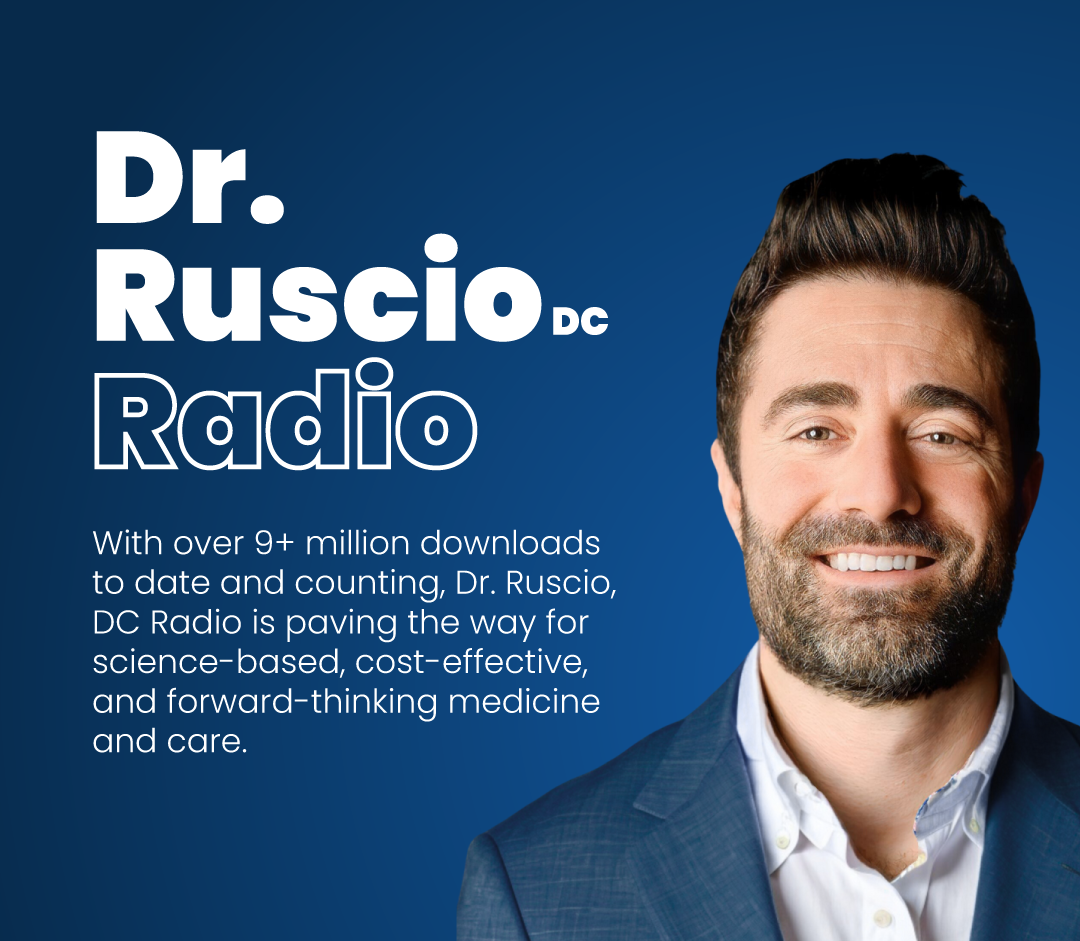
Dr. Ruscio, DC Radio
Episodes
What experts say about Dr. Ruscio Radio
-
Chris Kesser
New York Times best selling author of The Paleo Cure and Unconventional Medicine.
“I’ve always appreciated Dr. Michael Ruscio’s balanced view and dedication to science over dogma. Dr. Ruscio, DC Radio is a great source of information and guidance for anyone wishing to improve their health with a Functional and Integrative medicine approach.”
-
Josh Trent
Wellness Force Radio
“This podcast is an incredibly viable source of trusted information around the functional health and medicine space. Thank you for an incredible show and delivering your gifts to us in such a powerful way!”
-
Dr. David Perlmutter
Author, #1 New York Times bestseller Grain Brain and Brain Wash
“Dr. Ruscio, DC Radio presents the very best in science-based, forward thinking information. This is information that’s ready made for immediate implementation on your path towards better health.”
-
Shivan Sarna
Founder of the SIBO SOS Summits
“Curious and smart, Dr. Ruscio, DC is a voice of reason and hope intertwined with expert information. I love how he digs into different topics and solutions that are a combination of mainstream and alternative therapies. He is the real deal.”
-
Josh Axe
Doctor of Chiropractic, Certified Doctor of Natural Medicine and Clinical Nutritionist
“Dr. Ruscio, DC Radio is a needed resource in functional and integrative medicine. Laced with cutting edge science and a look at mainstream practices, the show captures health in a no-nonsense and affordable way, allowing people to educate and heal.”
-
![]()
Dr. Anna Cabeca
Triple-Board Certified OB-GYN
“Dr. Ruscio, DC Radio is a wonderful and informative way to stay up to date with pressing research and developments in functional and integrative medicine. It’s your no fluff science forward podcast.”
Subscribe & Listen
All Episodes with SummariesHave a question? Submit it here and we'll cover it.
Love the show?
Leave us a review on iTunes





![890 – Probiotics Improve Diarrhea, H. Pylori & IBS [New Science]](https://drruscio.com/wp-content/uploads/2024/03/DrRuscio-Radio-Cover-20240307-sh58ylz91y-768x768.jpg)














![875 – Probiotics Improve Leaky Gut, IBS & Candida [New Studies]](https://drruscio.com/wp-content/uploads/2024/03/DrRuscio_Radio-20240202-5bbauinyh9-768x768.png)

























